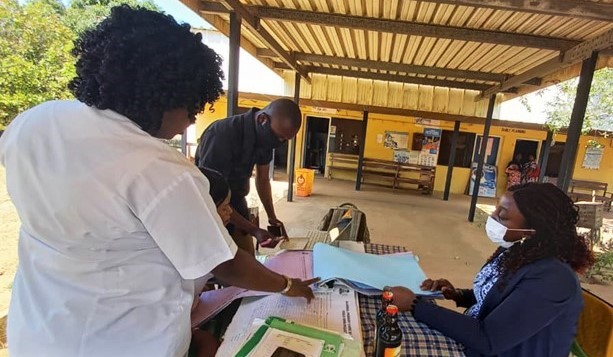The GID-FETP Project is a collaborative strategy between the US CDC Global Immunization Division and NFELTP. To synergize CDC in-country efforts and promote local solutions, the US CDC Global Immunization Division provides support to Nigeria Field Epidemiology and Laboratory Training Program (NFELTP) residents, and implementation by AFENET, to ensure high quality of immunization data, Routine immunization services and to boost the effectiveness and quality of AFP surveillance through participatory field projects and systematic surveillance service activities in collaboration with Ministry of Health staff and partners.
The GID Field Coordinators (Dr Elizabeth Adedire and Dr Abba Shehu) conduct regular supportive supervision to fellows working on the projects across the States, this is to track progress made on the project and ensure that the Fellows are well aligned with the State PEI activities.
For the 4th quarter of 2020, supportive supervision was held across six northern states (Sokoto, Zamfara, Yobe, Jigawa, Kogi and Borno from the 23rd of November to 3rd of December 2020 with technical support from NSTOP Data Technical officers. The objective of the supportive supervision is to assess the performance of NFELTP fellows and track progress on GID-NFELTP Project, provide mentoring and on-job training for the fellows and help Fellows navigate through operational and management challenges. During the visit’s advocacy were paid to key PEI stakeholders and, on the job mentoring provided to the fellows during the conduct of surveillance, RI and data Quality Supportive supervision.
The GID project since inception of the project have supported the states in enhancing surveillance and strengthening Routine immunization most especially at the community level through regular conduct of activities. The marked efforts of the Fellows in improving RI service delivery across supported states have been duly acknowledged by the respective State Ministries of Health, Primary Health Care Boards, and National Primary Health Care Development Agency.

